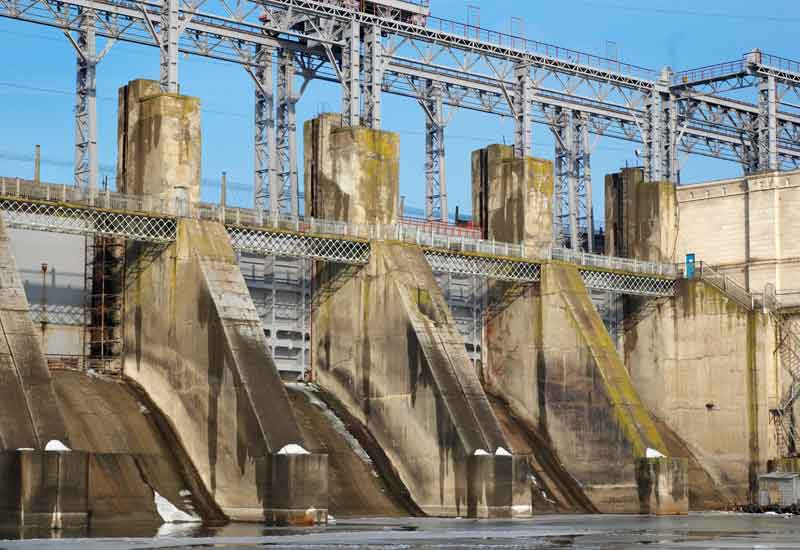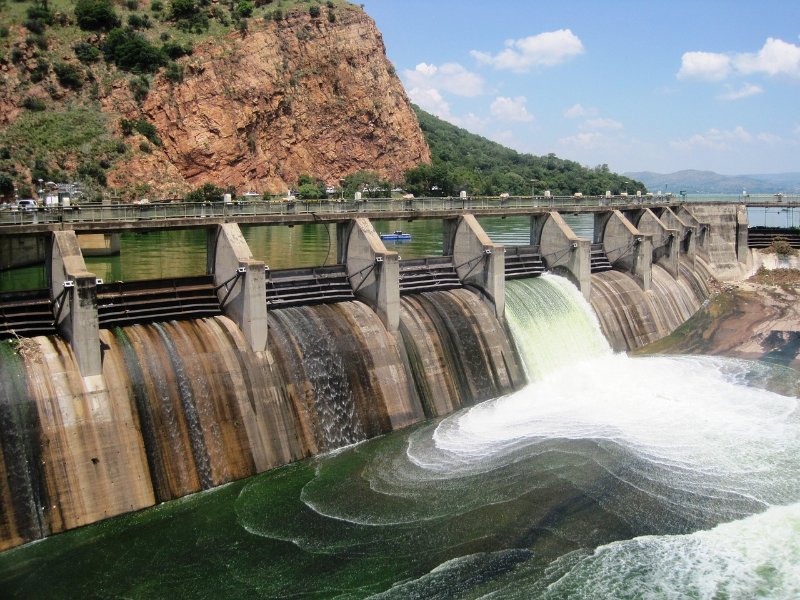The governments of Zambia and Zimbabwe have announced the retendering of the Batoka Gorge Hydropower project. This significant decision to seek new bidders for the $5 billion contract marks a renewed commitment to sustainable energy and economic resilience in Southern Africa.
Previously awarded to General Electric (GE) and Power Construction Corp of China, the contract now awaits new bidders. The Zambezi River Authority (ZRA), responsible for maintaining the Kariba Dam complex, will oversee the selection process, with new bidders expected to emerge by September next year.
The Batoka Gorge Hydropower Station, strategically positioned on the Zambezi River, is expected to be a game-changer in the region’s energy sector. With a potential output of 2.4 gigawatts, the project is not just about meeting local energy needs; it’s also about positioning Zambia and Zimbabwe as powerhouses in renewable energy, capable of exporting surplus electricity.
Read also: Liberia expands solar farm, hydropower in new energy Initiative
Why the Retendering?
Zambian Energy Minister Peter Kapala cited irregular procurement methods as the reason for exiting the 2019 contract with GE and Power China. The initial tender lacked due diligence, necessitating a fresh start. Additionally, Zambia faces a national disaster due to drought—a crisis affecting the entire southern African region. Rising food costs and water scarcity compound the challenges. Given these circumstances, immediate construction is unlikely, pushing the project timeline further.
The retendering process underscores a dedication to transparency and proper procurement practices. The initial contract, previously awarded to General Electric and Power Construction Corp of China, is now open for new bidders, reflecting a meticulous approach to ensuring the project’s success and integrity.
Environmental Stewardship and Ecological Balance
The Batoka Gorge project is set against the backdrop of the iconic Victoria Falls, necessitating a careful balance between energy development and environmental conservation. The construction of the dam will require rigorous environmental impact assessments to mitigate potential disruptions to the local ecosystem, including aquatic habitats and sediment transport.
Beyond the generation of electricity, the Batoka Hydropower Project is poised to stimulate economic growth through job creation and infrastructure development. It represents a significant step towards energy security in the region, with the promise of reliable and sustainable power supply.
Munyaradzi Munodawafa, Chief Executive of the Zambezi River Authority, emphasises the project’s importance. The Batoka Hydropower Scheme will serve as both a reservoir regulator for power generation and a flood management tool. Here’s how it works:
Peak Season Boost: During peak seasons, Batoka will ramp up electricity generation.
Dry Season Storage: In the dry season, water will be banked at Kariba Dam for future use.
Kariba Dam Challenges: The dam, straddling Zambia and Zimbabwe, faces receding water levels due to poor rainfall. The Batoka project aims to mitigate this challenge.
Regional Impact and Mitigation Measures
ZRA has allocated 8 million cubic meters of water to Zambian power utility Zesco and its Zimbabwean counterpart. This allocation translates to 214 megawatts for both electricity companies until year-end. The Batoka Hydropower dam, once completed, will contribute up to 2.4 gigawatts (GW) of power. Stakeholders, including UNESCO, eagerly await its commencement. Despite delays caused by retendering, the project remains a beacon of hope for energy-starved regions.
Read also: Solar power conference to address solutions for energy development
A Vision for the Future
The retendering of the Batoka Gorge Hydropower project may introduce delays, but the vision for a sustainable and empowered future remains clear. As the Zambezi River flows, so does the promise of sustainable energy. Liberia’s Batoka Hydropower project may face delays, but its impact will resonate for generations. From buffering reservoirs to powering homes, this venture embodies resilience, cooperation, and a shared vision for a brighter, electrified future.
As Zambia and Zimbabwe join forces in this monumental energy venture, the retendering of the Batoka Hydropower construction contract may delay its commencement, but the dream of abundant, clean energy remains steadfast.















